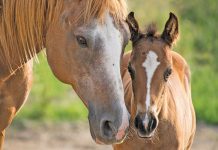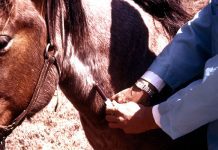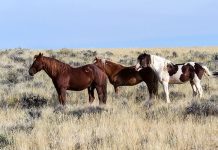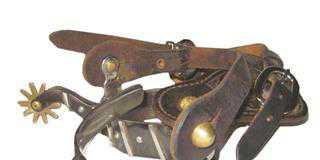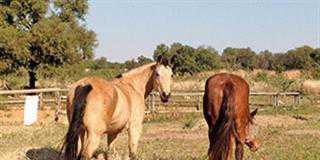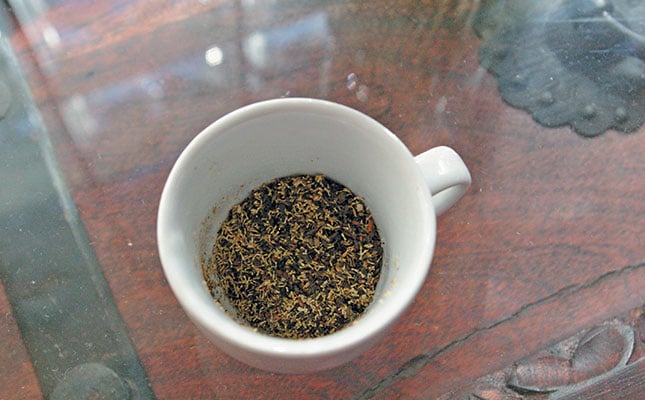
Spring is a glorious season for the riding fraternity, with long lazy outrides amongst pretty flowers and singing birds. Unfortunately, it’s also a time of allergies.
When a horse is exposed to even a small quantity of allergens, the body releases antibodies, proteins designed to neutralise allergens. A battle then ensues in the body between the antibodies and allergens.
READ New ‘fair chase’ hunting guild
If your horse comes out in a rash or hives (urticaria), it is experiencing an allergic reaction. The causes can include a change in diet or environment, or bowel bacteria. The latter is usually the most common cause.
I cannot stress enough how crucial bowel health is. If a horse’s (or human’s!) bowel is sluggish and full, the rest of the body takes strain.
In the case of a skin eruption, feed a good probiotic or even half a cup of fresh, natural yoghurt once a day until the symptoms clear. Probiotics help clear the bowel of harmful bacteria.
With rashes, a natural antiseptic such as tea tree oil can be applied topically. Lavender oil also works wonders.
For hayfever-like symptoms, try natural raw honey. Put two tablespoons on a small piece of bread and feed it to your horse daily.
If you need to treat more than one horse, dilute the honey (two tablespoons per horse) in 5ℓ of warm water and mix it in the feed. Do not use hot water, as this destroys honey’s beneficial properties.
A major cause of allergies is environmental changes, such as switching from shavings to straw bedding. The horse can become highly distressed and experience facial swelling.
If you suspect that bedding is the problem, river sand is the best alternative. It is economical and easy to maintain and dispose of.
Incidentally, most shavings are pine and hence acidic. When mixed into a flower bed, they can cause a disruption in the soil chemistry, leading to weeds and a fertile breeding ground for flies.
Add lime to prevent this.
Horses with chronic obstructive pulmonary disease should be placed in an airy stable or put
out with a rug (in winter) in a small paddock. Slightly dampen the teff or hay.
Next, place the teff net in a large, clean (ideally new) dustbin, place two drops of eucalyptus oil on the top of the teff net, pour 2ℓ to 5ℓ boiling water over the net, replace the bin’s lid, and leave for 20 minutes.
This will allow the steam to soften and clean the grass. When you remove the net, add two teaspoons of raw honey to a little cool water and spray the outside of the net.
After exercise
Massaging the large muscle groups after a ride helps to restore circulation and rid the body of toxins.
Walk your horse for 20 minutes after a massage and place a very small amount of molasses in the water bucket to encourage drinking. This will ensure the kidneys can flush out the toxins more efficiently.
Remember, no home remedy should take the place of a vet’s advice.
Kim Dyson breeds Arabians and Lusitanos, and has 22 years’ experience in holistic equine and human body work.


